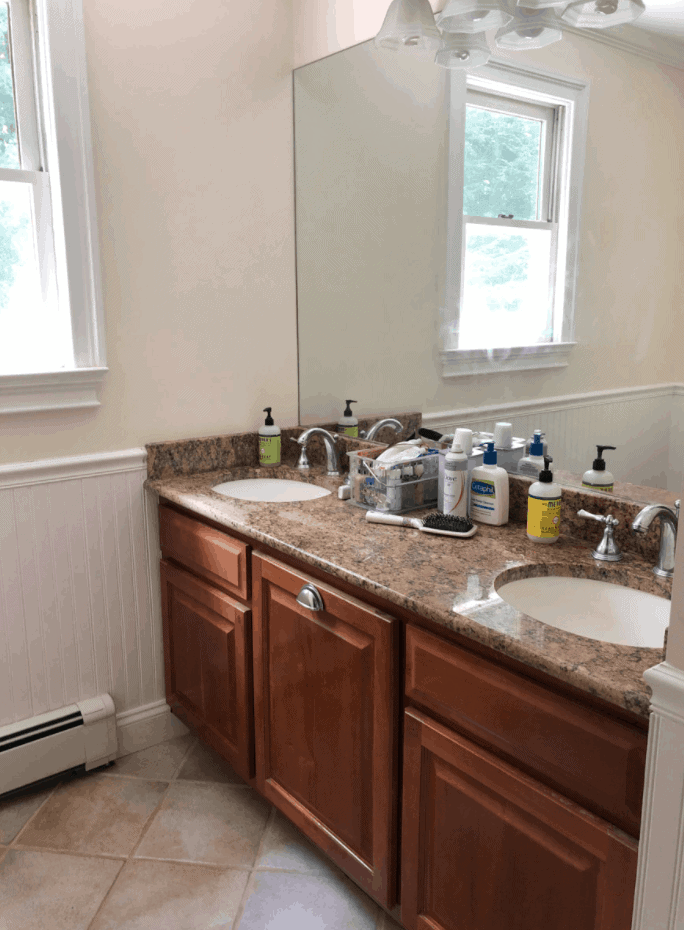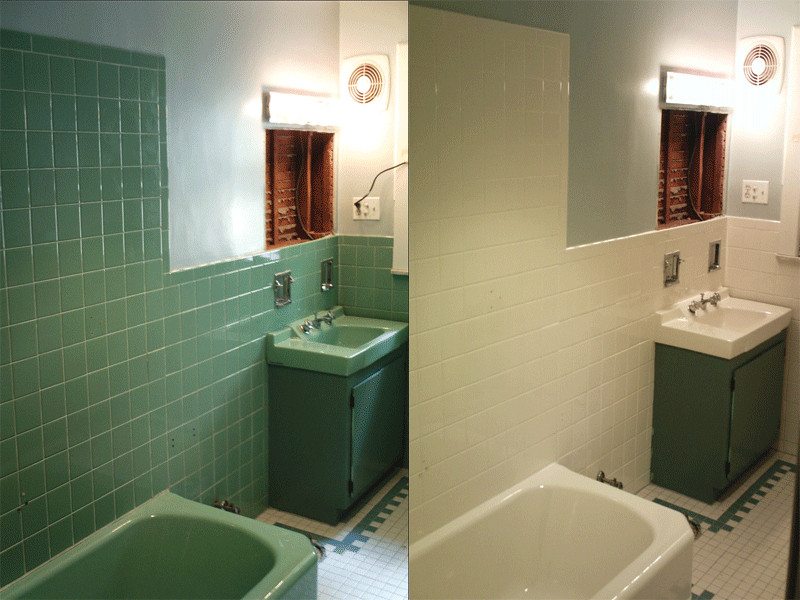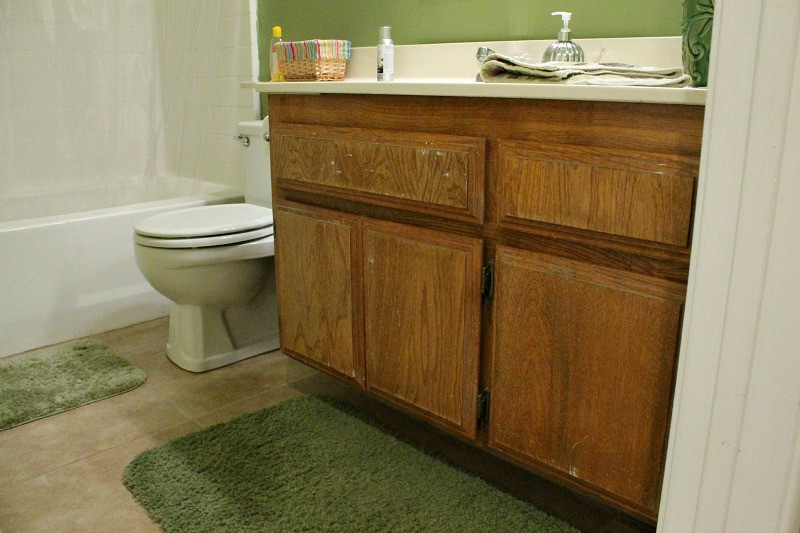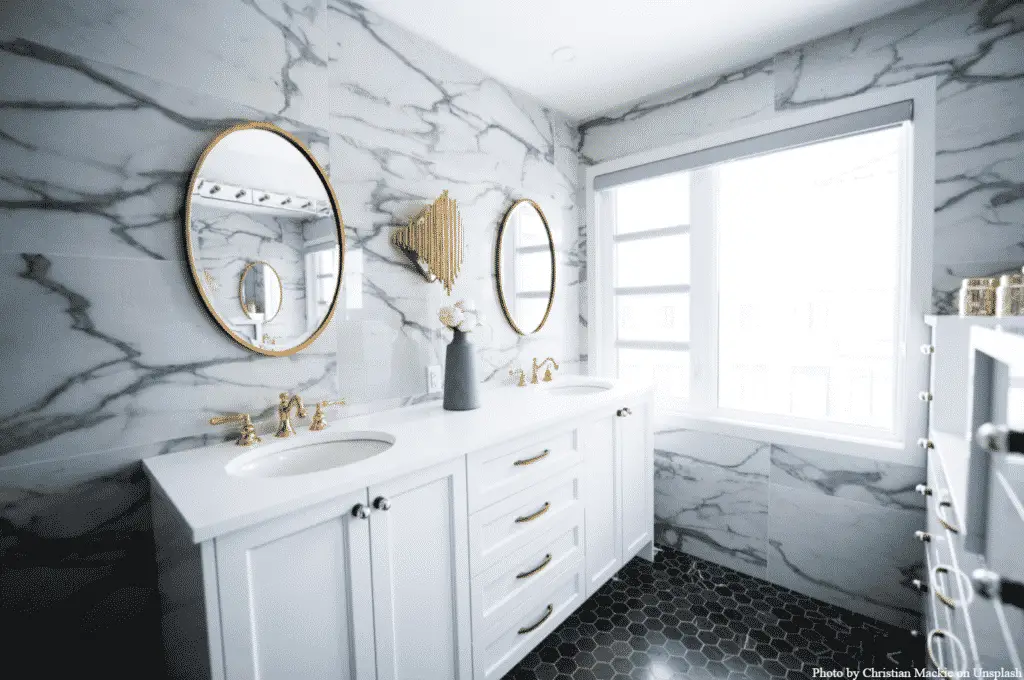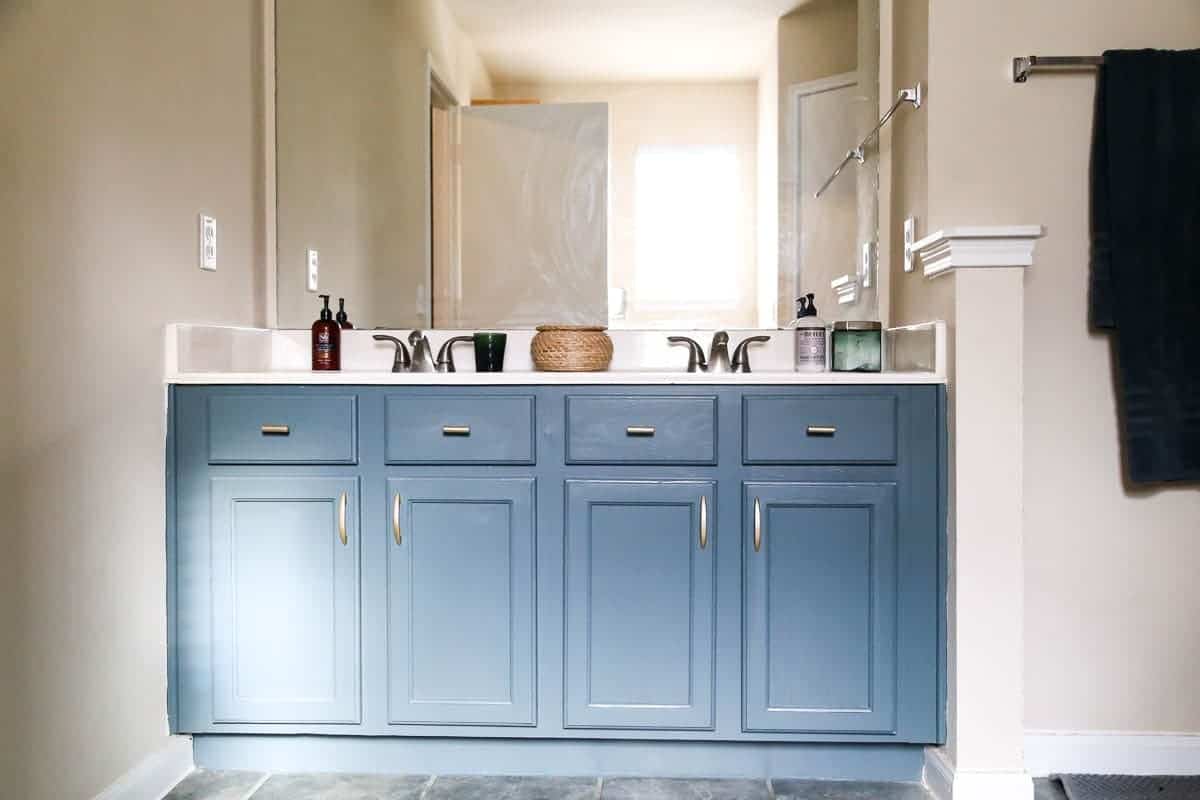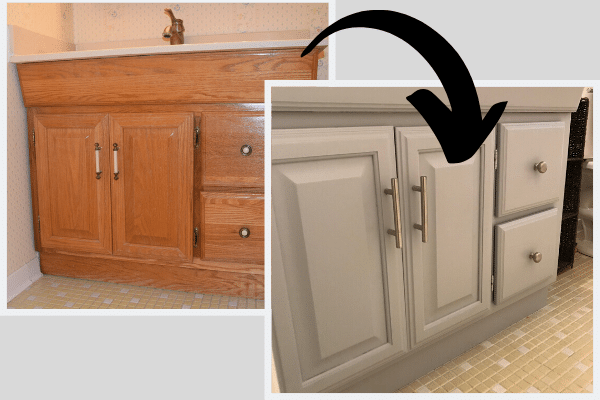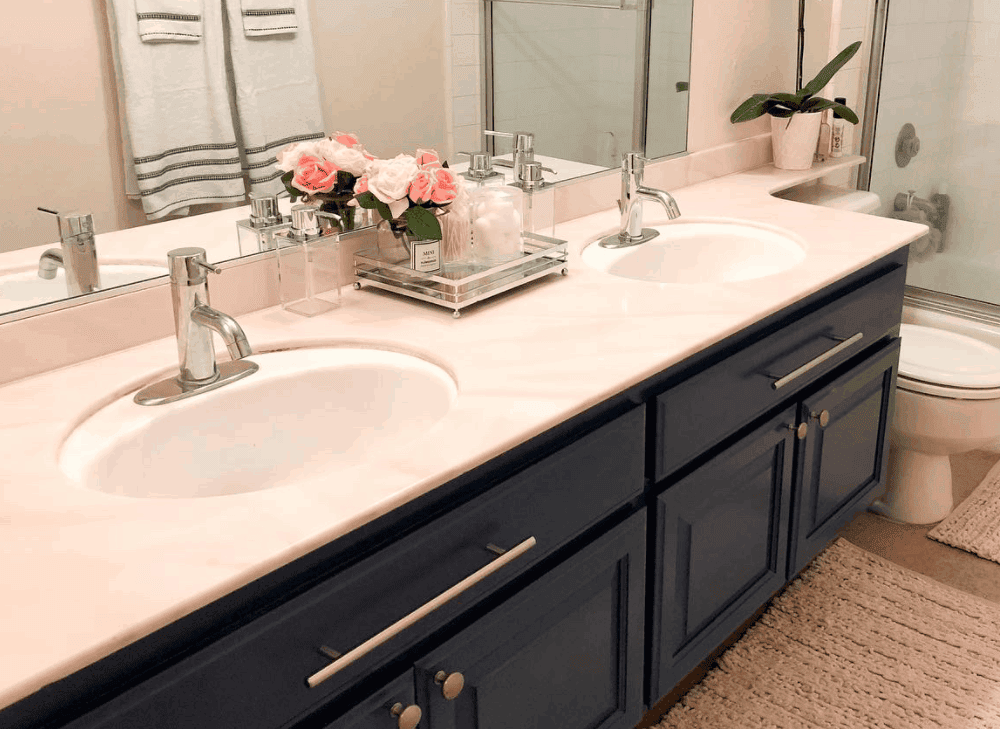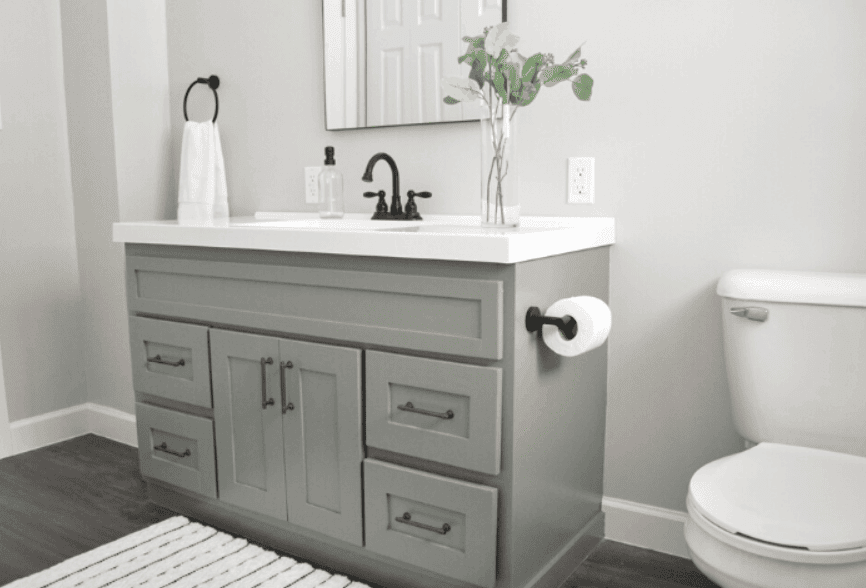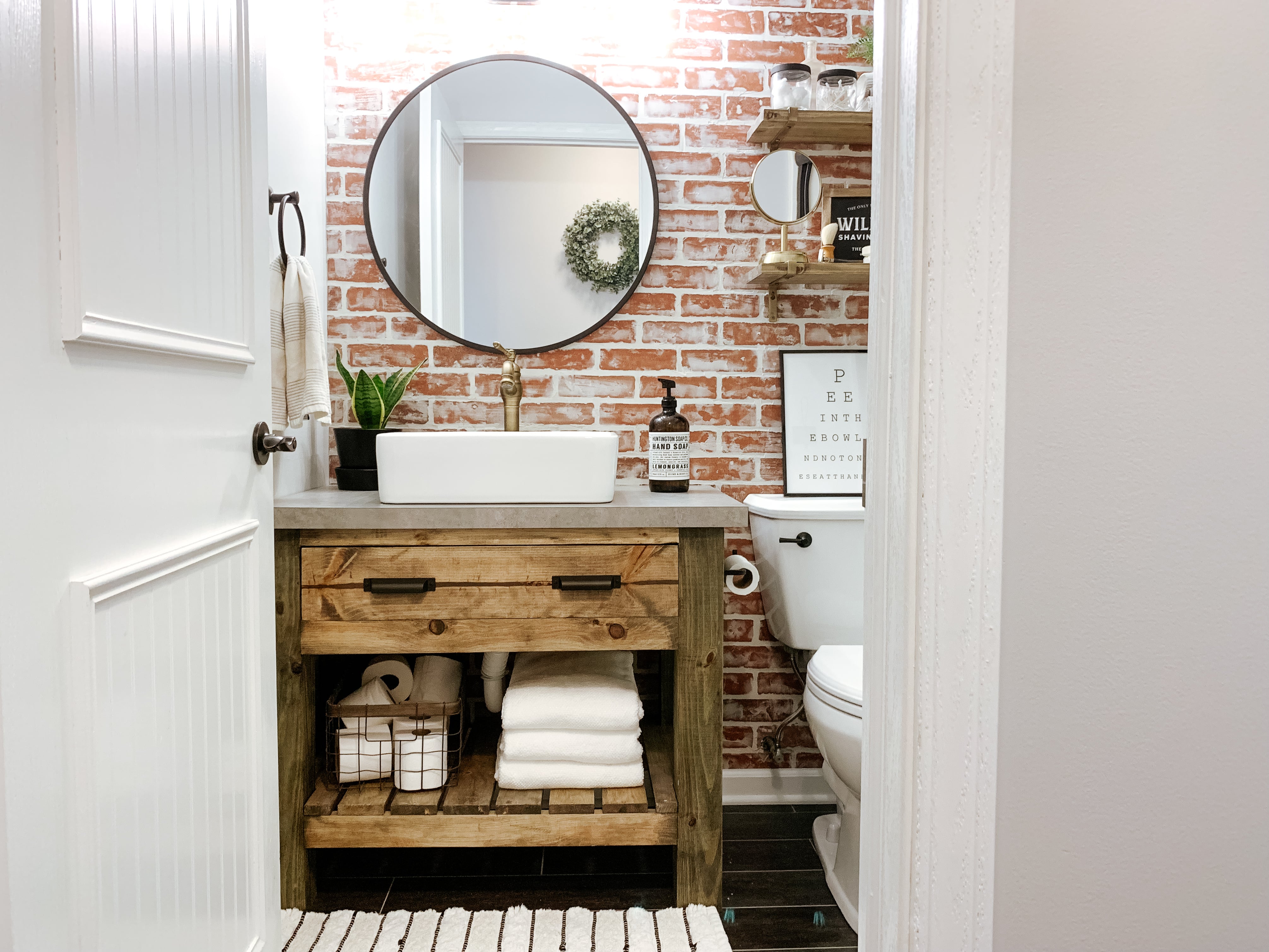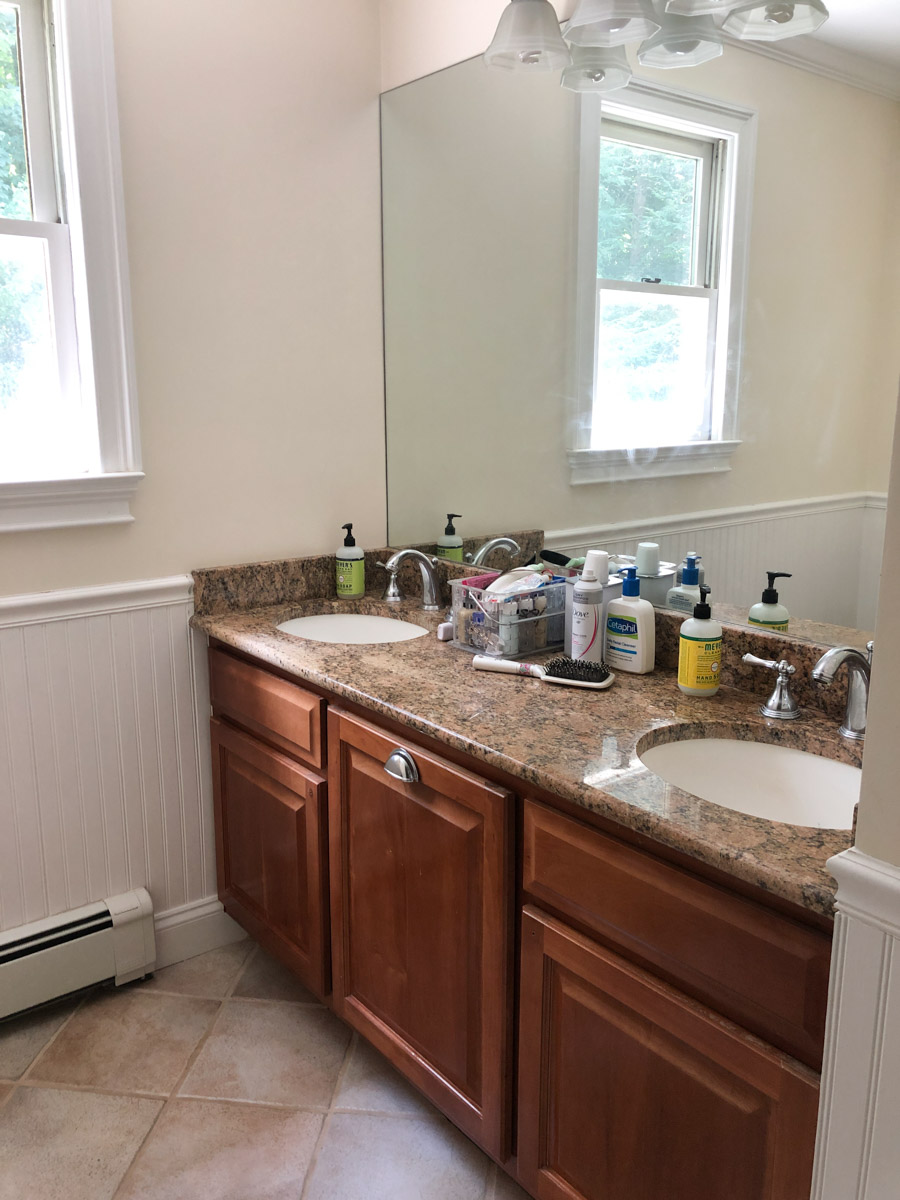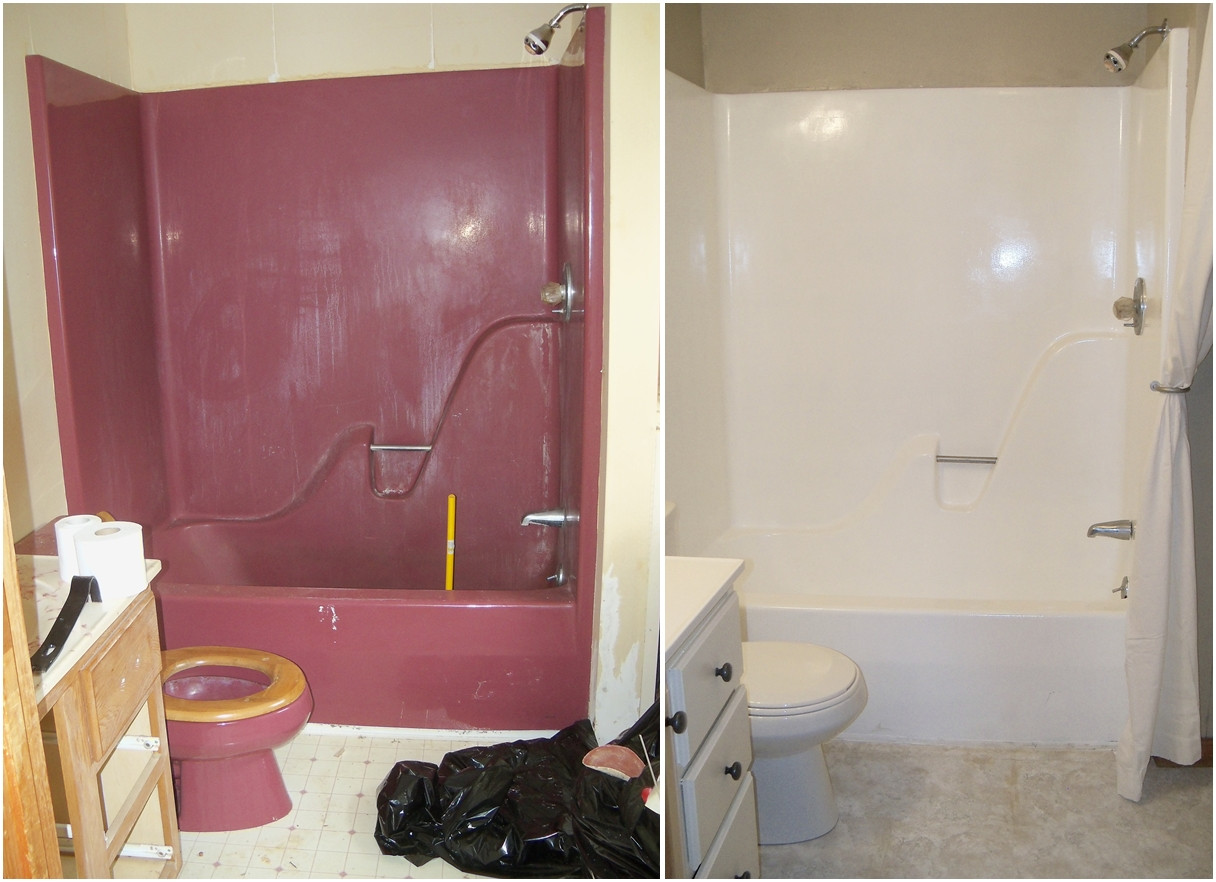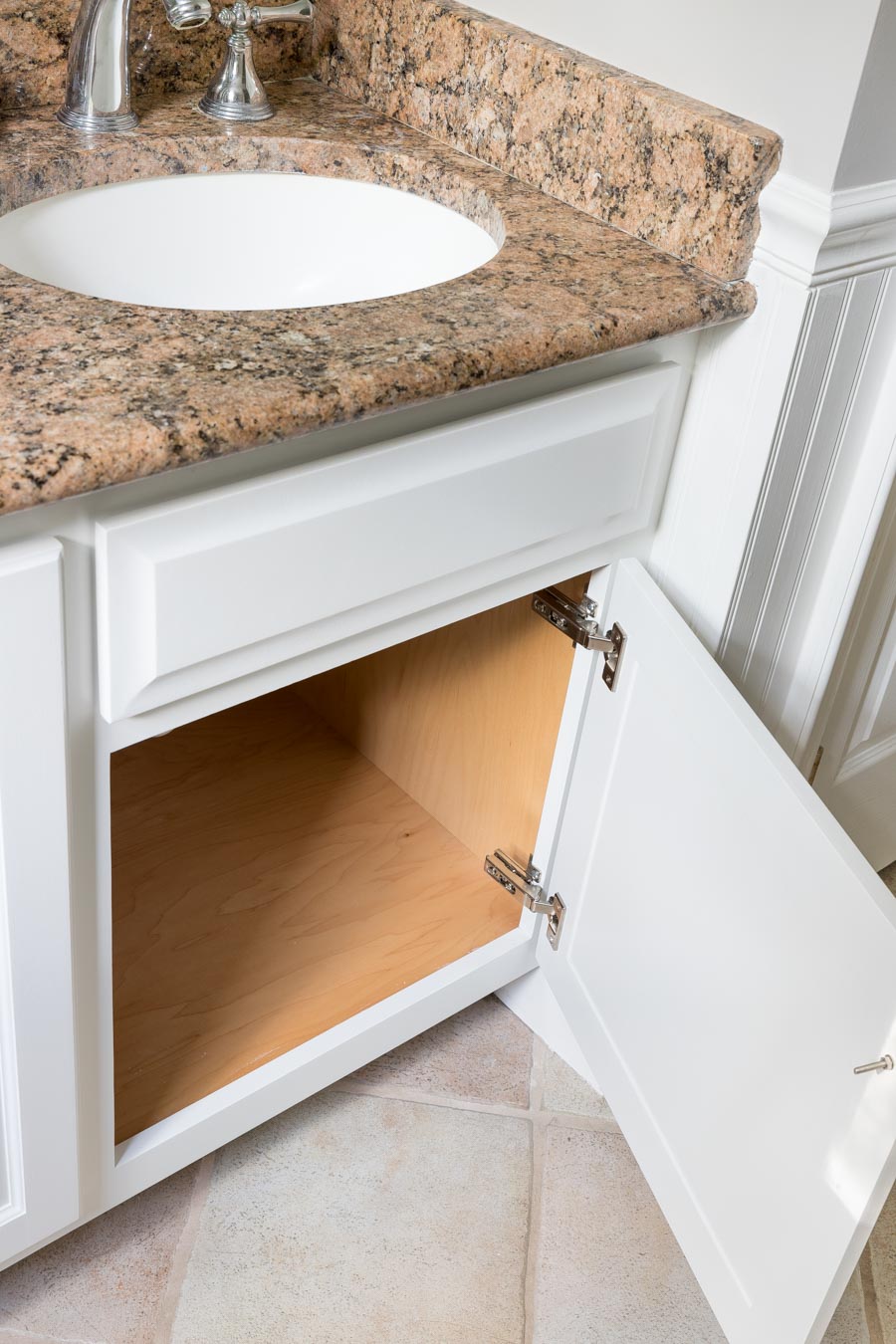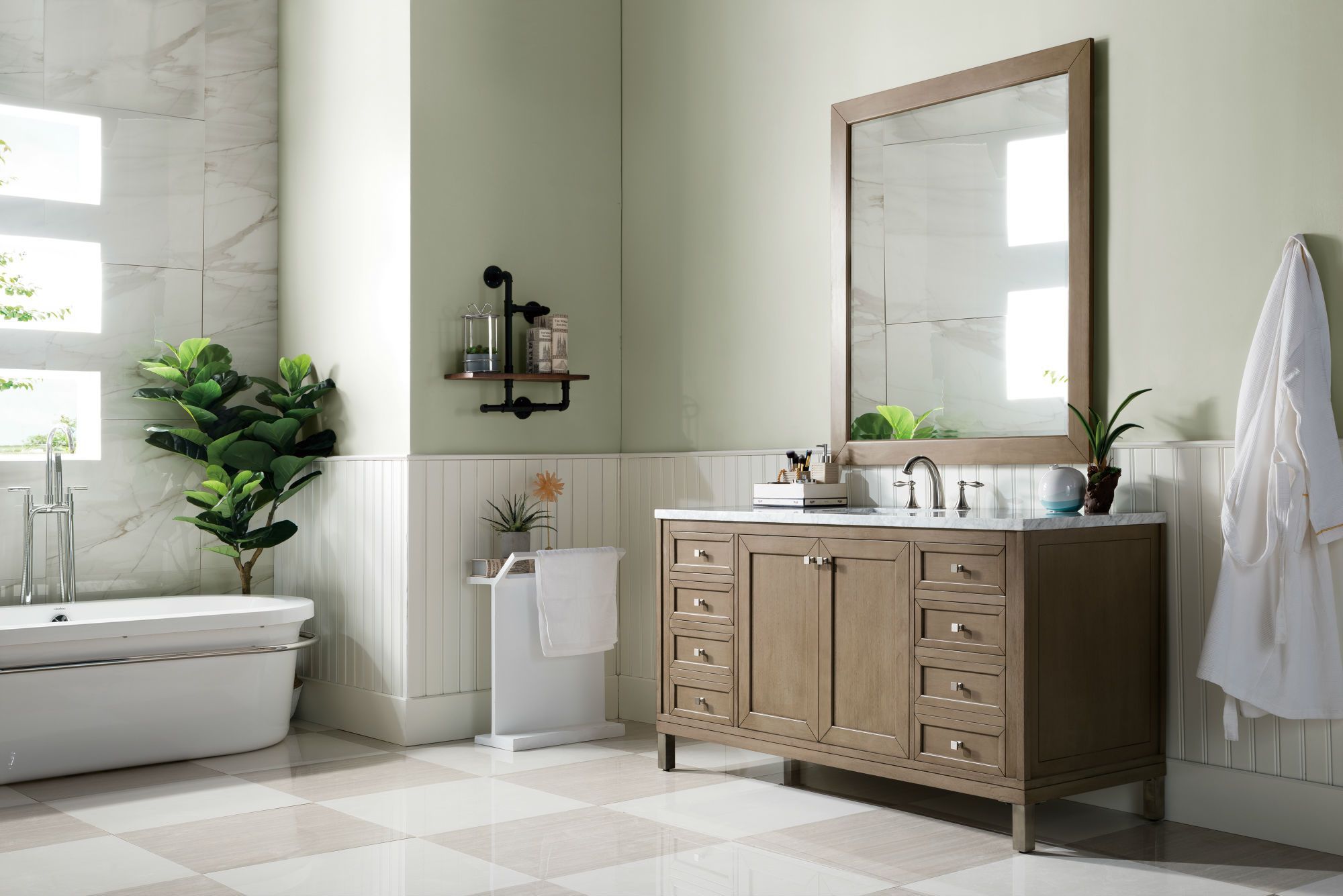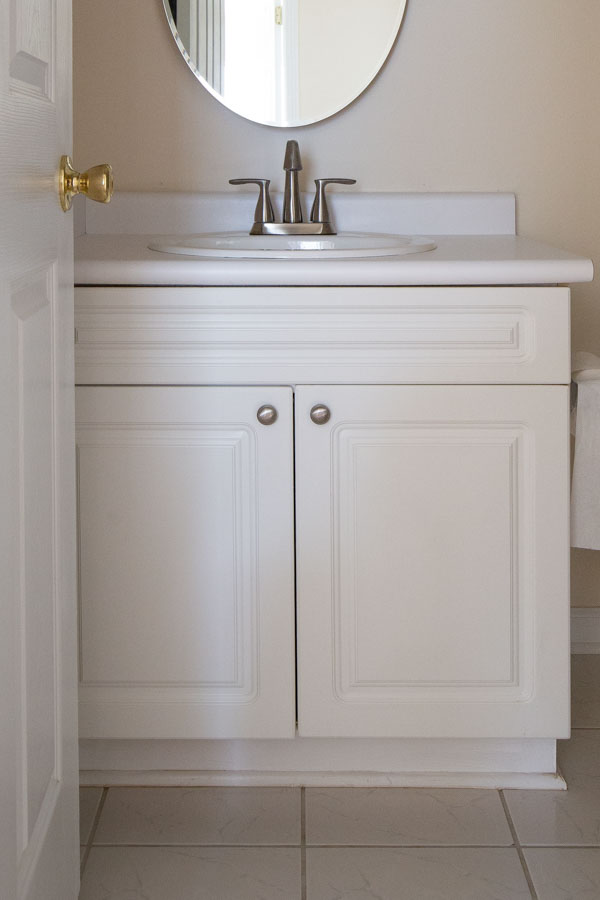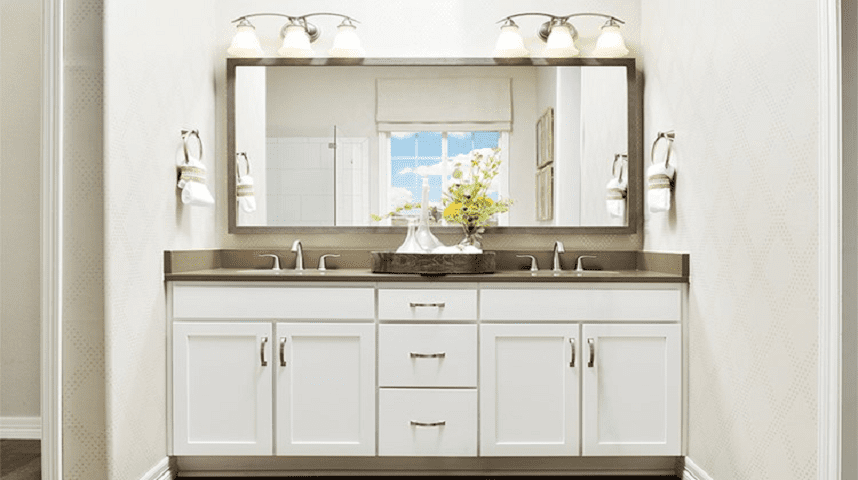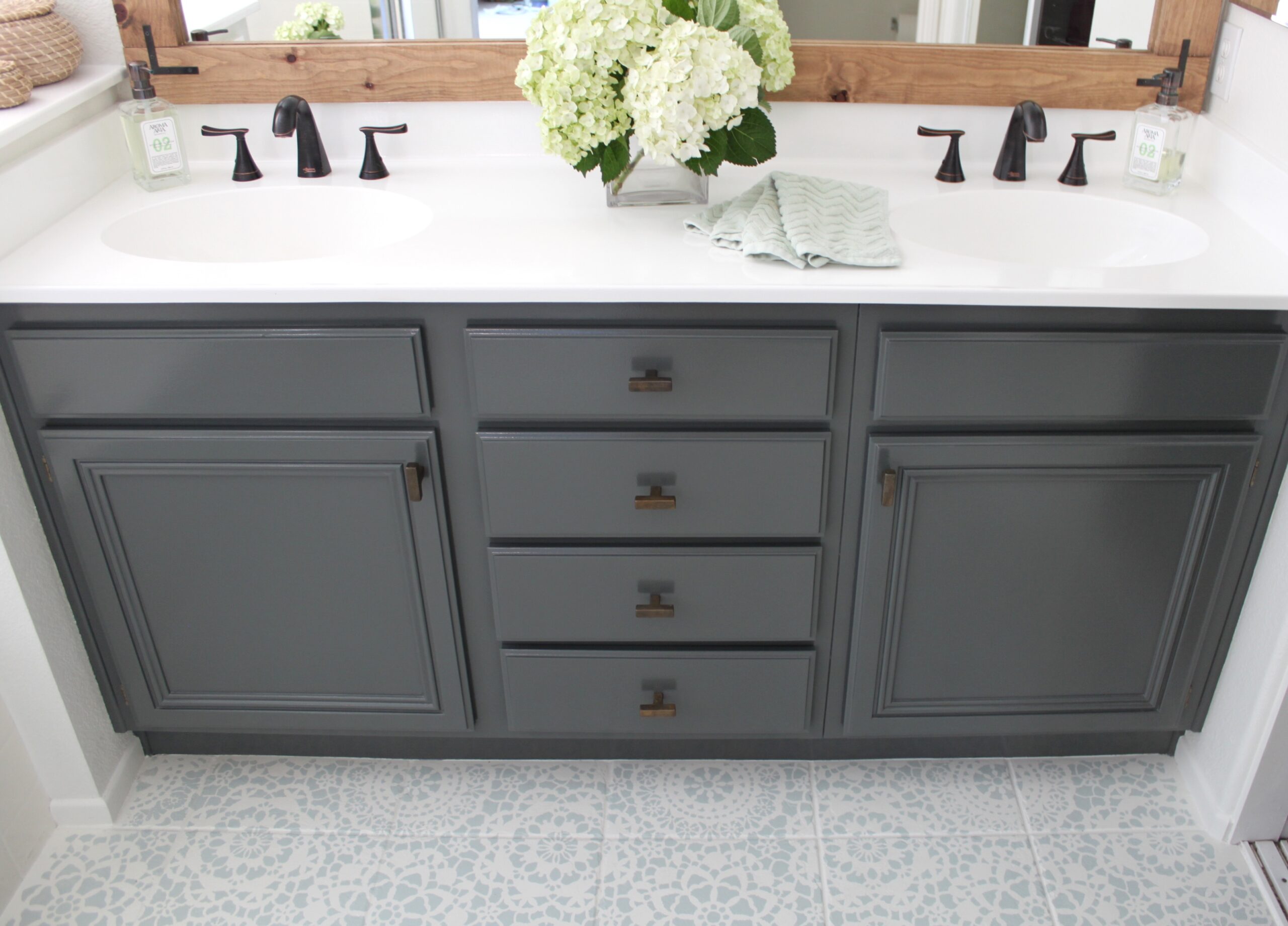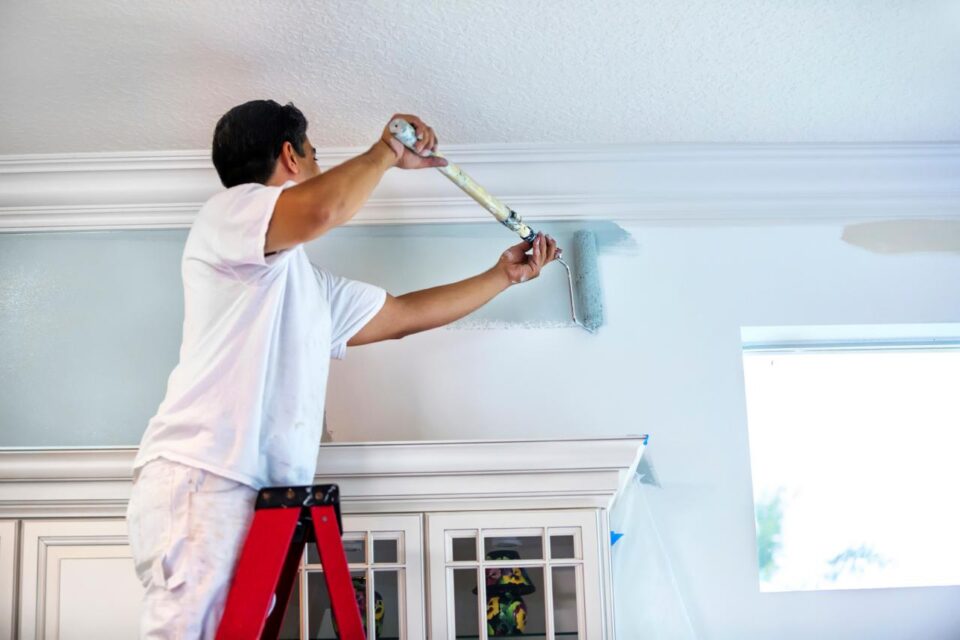Giving your bathroom vanity a fresh coat of paint is a simple and cost-effective way to transform the look of your bathroom. Whether you want to update the color or give it a new lease on life, repainting your bathroom vanity can make a big impact. In this guide, we'll take you through the step-by-step process of repainting your bathroom vanity like a pro.Repainting a Bathroom Vanity: A Step-by-Step Guide
Before you begin, it's important to gather all the necessary materials. You will need:How to Repaint a Bathroom Vanity Like a Pro
First, remove all hardware, including drawer pulls and knobs, with a screwdriver. If you plan on changing the hardware, fill the holes with wood filler and let it dry before sanding. Next, use sandpaper to lightly sand the entire vanity, including the doors and drawers. This will help the paint adhere better. If the vanity has a glossy finish, you may need to use a degreaser or TSP cleaner to remove any residue before sanding. After sanding, wipe down the vanity with a clean cloth to remove any dust. Then, use painter's tape to cover any areas you don't want to get paint on, such as the walls or floor.DIY Bathroom Vanity Makeover: Repainting Tips and Tricks
Now it's time to prime! Use a paintbrush to apply a coat of paint primer to the entire vanity, including the doors and drawers. This will help the paint adhere better and prevent any stains or discoloration from showing through. Let the primer dry completely before moving on to the next step. For the best results, use a high-quality paint specifically designed for bathroom cabinets and vanities. Latex paint is a popular choice as it is easy to clean and has a low odor. However, oil-based paint is more durable and can withstand moisture better. Use a paintbrush to apply the first coat of paint in long, even strokes. Let it dry completely before applying a second coat. Depending on the color and type of paint, you may need to apply a third coat for full coverage.Transform Your Bathroom Vanity with a Fresh Coat of Paint
Once the final coat of paint is dry, you can reattach the hardware. If you filled any holes, use a drill to create new holes for the hardware to be screwed into. Before using your newly painted bathroom vanity, it's important to let the paint cure for at least a week. This will ensure that the paint has fully dried and hardened, making it more durable and resistant to scratches and chips.Repainting Your Bathroom Vanity: What You Need to Know
Repainting your bathroom vanity is a great way to update the look of your bathroom without breaking the bank. With the right materials and techniques, you can achieve a professional-looking finish that will last for years to come. Plus, you can have fun choosing a new color to match your style and add a pop of personality to your bathroom.From Drab to Fab: Repainting Your Bathroom Vanity
If your bathroom vanity is outdated, damaged, or no longer functional, you may be wondering if it's better to repaint or replace it. While repainting is a more budget-friendly option, replacing it may be necessary if it is beyond repair or you want to completely change the style of your bathroom. Consider your budget, timeline, and personal preference before making a decision.Repaint or Replace? Making the Decision for Your Bathroom Vanity
When it comes to choosing the right paint for your bathroom vanity, it's important to consider not only the color but also the type of paint. As mentioned earlier, latex paint is a popular choice for its easy clean-up and low odor. However, if your bathroom experiences a lot of moisture, oil-based paint may be a better option for its durability.Choosing the Right Paint for Your Bathroom Vanity
If you're on a tight budget, repainting your bathroom vanity is a great way to update the look of your bathroom without spending a lot of money. You can save even more by using leftover paint from other projects or purchasing discounted paint from a home improvement store. Just be sure to choose a color that complements your bathroom and makes you happy.Repainting Your Bathroom Vanity on a Budget
While repainting your bathroom vanity is a relatively simple project, there are some common mistakes that can easily be avoided:5 Common Mistakes to Avoid When Repainting Your Bathroom Vanity
Transform Your Bathroom with a Fresh Coat of Paint on the Vanity
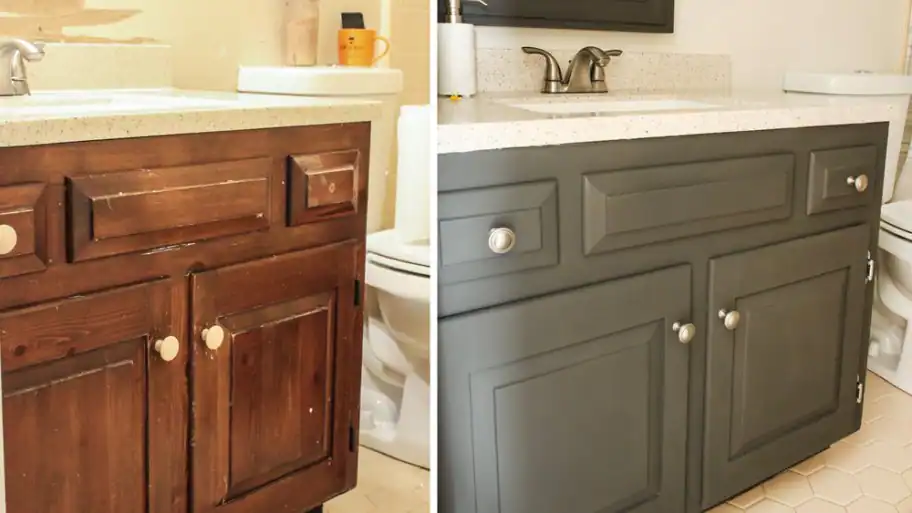
When it comes to giving your bathroom a makeover, painting the vanity can make a big impact without breaking the bank. Whether your vanity is outdated, worn, or just in need of a refresh, repainting it can instantly transform the look and feel of your bathroom. Not only is it a cost-effective way to update your space, but it also allows for endless possibilities in terms of color and design. In this article, we will guide you through the process of repainting a bathroom vanity and provide tips for achieving a professional and polished result.
Preparation is Key
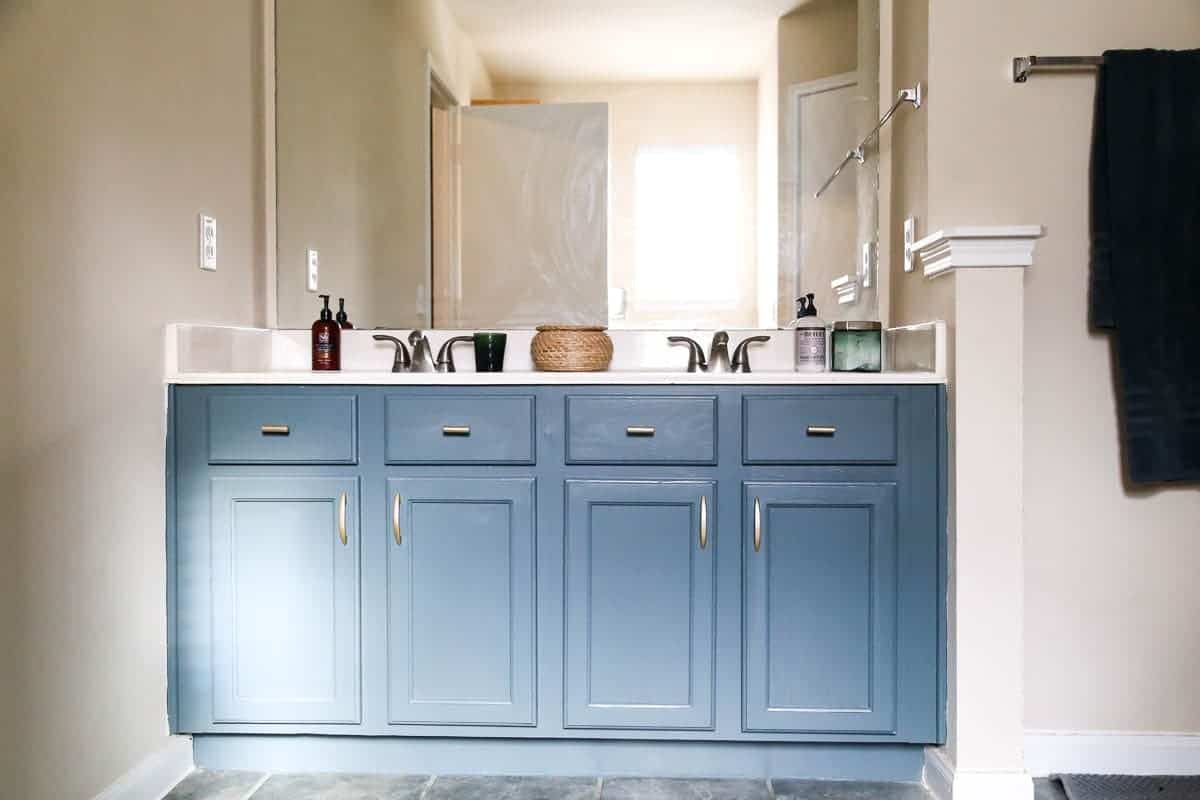
Before you dive into painting, it is important to properly prepare your vanity for the best results. Start by removing all drawers and cabinet doors, as well as any hardware. Clean the surfaces with a mild detergent and rinse thoroughly. Sand down any rough spots or imperfections and fill in any holes with wood filler. Once dry, sand the surface again to ensure a smooth and even finish.
Choose the Right Paint

When it comes to painting a bathroom vanity, it is important to choose the right type of paint. Acrylic latex paint is a popular choice for its durability and ability to withstand moisture. It also dries quickly and has low levels of volatile organic compounds (VOCs), making it a safer option for indoor use. Semi-gloss or high-gloss finishes are recommended for their resistance to water and ability to be easily wiped clean.
Proper Technique is Key
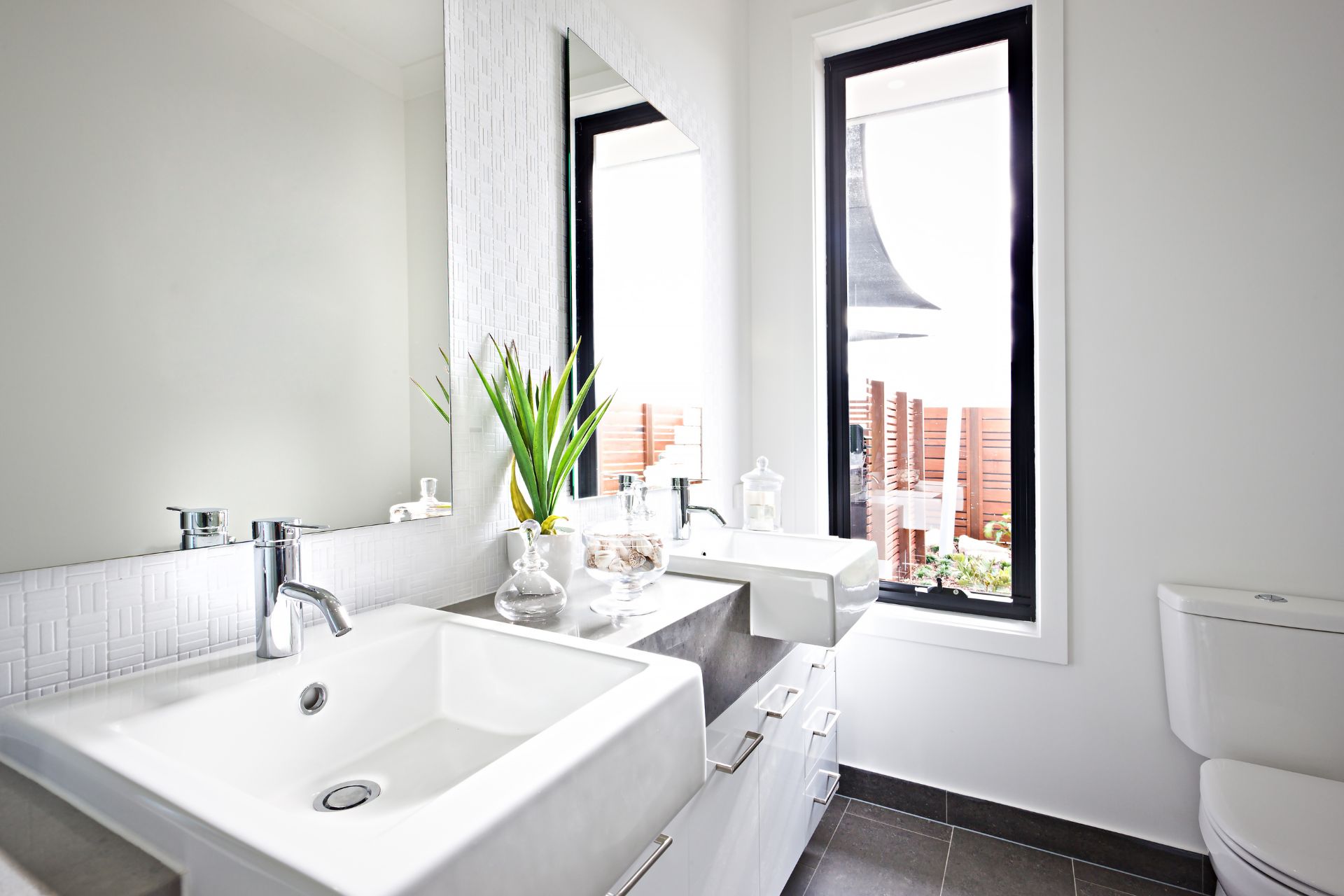
To achieve a professional finish, it is essential to use the proper technique when painting a bathroom vanity. Start by applying a coat of primer , which will help the paint adhere to the surface and prevent any stains from showing through. Next, use a high-quality paintbrush or foam roller to apply thin and even coats of paint, allowing each coat to dry completely before adding the next. This will prevent any brush marks or streaks and ensure a smooth finish.
Add Finishing Touches
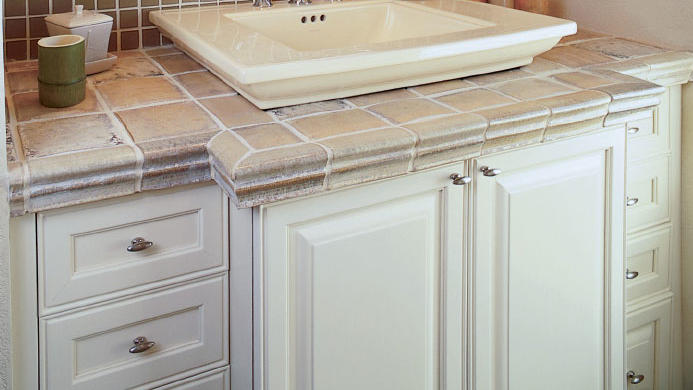
Once the paint is dry, it’s time to add the finishing touches to your newly painted vanity. Replace any hardware that was removed and consider adding new knobs or pulls for a fresh look. You can also add a coat of polyurethane for added protection and a glossy finish. Lastly, reattach the drawers and cabinet doors and step back to admire your newly painted bathroom vanity.
Repainting a bathroom vanity is a simple and cost-effective way to update your bathroom and give it a whole new look. With the right preparation, paint, and technique, you can achieve a professional and polished finish that will leave your guests impressed. So, why wait? Grab your paintbrush and transform your bathroom today.
